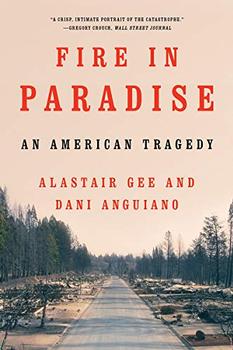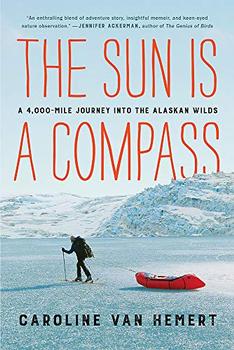Summary | Excerpt | Reading Guide | Reviews | Beyond the book | Read-Alikes | Genres & Themes | Author Bio

Jack and Wynn are college friends on a canoeing trip down the Maskwa River in Northern Canada. They've agreed to take a semester off from school in order to maximize time on the river, and for the most authentic adventure possible, they do not bring a satellite phone. Despite their strong wilderness skills, their adventure is put to the test when they discover a massive forest fire threatens to overtake them. Even worse, while paddling through the fog, they overhear a heated argument between a husband and wife camped on the riverside, only to find a man paddling alone the next day. What starts off as a fun-filled retreat into nature becomes a race against time that pits them against the very river they meant to savor.
Heller's narration shifts in intensity, one moment supremely focused on his characters, the next at a distance from them. Initially, the third person point-of-view focuses on Jack and Wynn's surroundings, the vast Canadian wilderness; pages of description occur before either character is named. By starting the novel so removed from the protagonists, Heller makes them seem especially vulnerable to the elements. The prose both enhances the contemplative air of their trip and underscores the river's isolation. Sentences are long, paragraphs short. The narrative fluctuates between third person omniscient and third person limited, with Jack's interior life given the most space. The novel mirrors the river; just as it widens and narrows, languidly drifts or rushes through rapids, perspective and tone shift to further the story.
While Wynn is carefree and optimistic, Jack is his foil—he thinks the worst of those they come across. This dynamic is intrinsic to their friendship, but as the tension mounts, it is responsible for much of the interpersonal strain. They're both supremely well-read college students, and they (Wynn especially) have a love for philosophy. The conflicts in the novel are ultimately human-driven, despite the wilderness survival backdrop, and the clashes that Jack and Wynn have about human nature are in direct conversation with the plot points. From the outset, Wynn wants to see the best in the lone man they find canoeing, but Jack is certain the man is a killer. While subtler than the direct references to famous philosophers, Heller also uses religious language, suggesting that Jack and Wynn are on a pilgrimage of sorts—reinforcing the idea that this is a morality play about the concepts of good and evil.
Once the plot begins in earnest, the novel is fast-paced by necessity, but there are moments that warranted more depth. For example, more dialogue between Jack and Wynn at the beginning would have demonstrated their relationship dynamic and provided increased character depth, which at times felt lacking. This may have been intentional; the author seems to be emphasizing that who a person is in daily life might be very different from who they become in the wilderness. But it took a few chapters for me to truly care about the characters' fates. Heller's pace often rushes readers along, parallel to how Jack and Wynn are rushed down the river; however, his prose was enjoyable enough that additional slower moments to focus on the characters would have been welcome. Even with these minor criticisms, the novel is excellent and comes to a moving, emotionally-charged conclusion.
The River offers both a literal and figurative journey; it is a thrilling and contemplative page-turner with sharp insight into the human condition.
![]() This review was originally published in The BookBrowse Review in May 2019, and has been updated for the
March 2020 edition.
Click here to go to this issue.
This review was originally published in The BookBrowse Review in May 2019, and has been updated for the
March 2020 edition.
Click here to go to this issue.

If you liked The River, try these:

by Alastair Gee, Dani Anguiano
Published 2021
The harrowing story of the most destructive American wildfire in a century.

by Caroline Van Hemert
Published 2020
The gripping story of a biologist's journey from Washington State to high above the Arctic Circle - traveling across remote and rugged terrain solely by human power - to rediscover birds, the natural world, and her own love of science.
Your guide toexceptional books
BookBrowse seeks out and recommends the best in contemporary fiction and nonfiction—books that not only engage and entertain but also deepen our understanding of ourselves and the world around us.